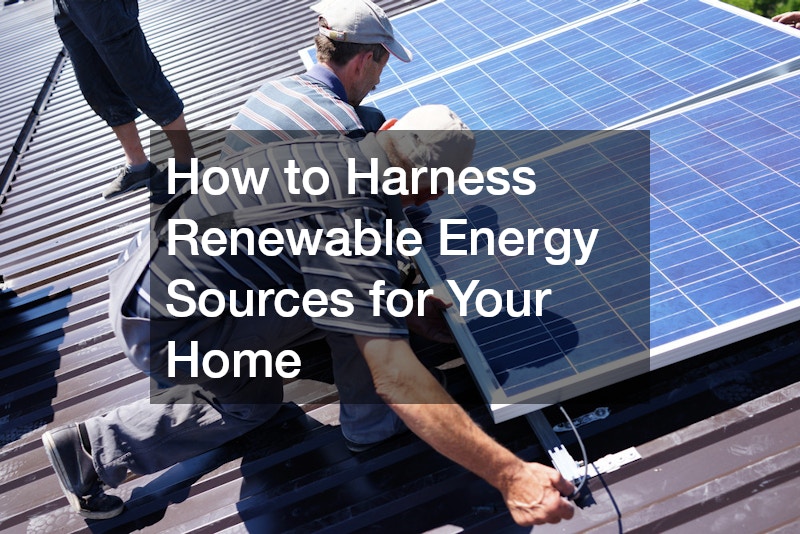It is important to reduce your monthly utility costs and energy consumption by improving the energy efficiency of your home. Improved energy efficiency can have a significant impact on your home, whether you are motivated by environmental concerns or just want to save money. Total renovation strategies to boost energy efficiency include evaluating existing systems, upgrading important areas, and implementing new technologies that optimize energy usage.
These improvements, from incorporating renewable energies to improving insulation, not only improve comfort but also increase the value of your home. Total renovations require careful planning and meticulous attention to detail. This will make your home more cost-effective and sustainable.
Understand the Importance of Home Energy Efficiency
The importance of energy efficiency in the home is greater than ever. Homeowners are seeking ways to cut their energy consumption without sacrificing comfort due to rising energy prices and concerns over environmental sustainability. Total renovations focusing on energy efficiency aim to fix inefficiencies throughout the house, including heating, cooling, lighting, and insulation. Upgrades to certain areas can save homeowners money and contribute to a healthier environment. Your home’s value will increase if you make it more energy-efficient. Buyers who are concerned about energy efficiency are more likely than others to purchase homes that consume less energy.
The condition of your roof is one of the most important factors to improve home energy efficiency. Well-maintained roofing plays an important role in controlling the temperature of the home and reducing the need to overheat or cool. A residential roofing company can assist you in ensuring that your roof is properly insulated and sealed during your renovation. This will prevent heat loss in winter and keep your home cooler in summer. It can have a significant impact on energy consumption and help you achieve your efficiency goals.
How to Assess Your Home’s Energy Consumption

It’s important to know your current energy consumption before you implement total renovation strategies. It involves reviewing your bills, identifying appliances that are frequently used, and evaluating your HVAC systems. The energy audit can also help you identify areas of your home where energy is being wasted, such as drafty windows or outdated appliances. You can prioritize your renovations and upgrade the most important upgrades by identifying where energy is wasted. Assessment of your home’s energy usage is the basis for an energy-saving renovation strategy.
HVAC repairs are often the first step in addressing energy inefficiency. Your home’s energy consumption can be significantly affected if your HVAC system is old or broken. You can make sure that your heating and cooling system is operating at its peak efficiency by having an HVAC professional inspect your system and repair it as part of an overall renovation. Regular maintenance and any repairs that are needed can reduce energy consumption and improve your home’s comfort. This is particularly true for homes that have older systems which may not meet current energy efficiency standards.
Upgrade to Energy-Efficient Doors and Windows
The energy efficiency of a house is largely determined by the windows and doors. The energy efficiency of a home can be affected by old or poorly sealed doors and windows. This will increase heating and cooling costs because the home is unable to maintain an even temperature. This energy loss can be dramatically reduced by total renovation strategies that replace outdated windows and door models with energy-efficient ones. Modern windows often have double or triple-glazed panes, which provide better insulation. Energy-efficient doors use materials that maintain thermal comfort and prevent drafts. These upgrades improve energy efficiency and increase the value of your home.
Window replacement should be considered when considering a total renovation of your home. A window replacement company will ensure that your new windows are installed correctly and in accordance with the most recent energy-saving technology. The use of energy-efficient windows can help reduce heat transfer and keep your home warmer in winter while keeping it cooler in summer. Upgrades to well-insulated doors can also reduce drafts and improve your home’s performance.
Improve Insulation to Optimize Temperature Control
Insulation is a key element in maintaining an energy-efficient home. Heat can escape in the winter and enter the home during the summer without proper insulation. This will make your HVAC system work harder and increase your energy bill. Total renovations that include upgrading insulation in key areas like the attic and walls can help regulate temperatures indoors more effectively. Modern insulation materials provide superior thermal resistance. This helps you maintain a comfortable home temperature all year round without having to constantly adjust the heating and cooling.
When you hire an insulation contractor to help with your renovation, you will receive expert advice on the best insulation options for your home. They can evaluate your insulation levels and make recommendations to improve thermal efficiency. Improve your home’s energy efficiency by improving the insulation.
The Role of Smart Thermostats in Energy Savings
Smart thermostats are revolutionizing the way that homeowners manage their energy consumption. Smart thermostats can be programmed to learn your schedule and adjust the temperature automatically based on habits. They also allow remote control through smartphone apps. These features allow homeowners to maintain the ideal temperature while avoiding excessive energy consumption when their home is not occupied. Smart thermostats can be integrated into renovation strategies to improve energy management and reduce costs. These devices also provide homeowners with detailed energy reports that help them make informed decisions regarding their heating and cooling habits.
Installing a smart thermostat can be a great step in improving your home’s energy efficiency. However, it is also important to ensure that your home is properly sealed. Working with a contractor to caulk your home during a renovation will help you eliminate air leaks around doors, windows, and other possible points. Sealing gaps and cracks will prevent conditioned air from escaping, maximizing the efficiency of your smart thermostat.
How to Harness Renewable Energy Sources for Your Home

Integrating renewable energy sources in your home is one of the best strategies for energy efficiency. Solar, wind, or geothermal power can be harnessed by homeowners to reduce their reliance on conventional energy sources and lower utility bills. Solar panels have grown in popularity due to their ability to generate electricity from the sun. Batteries, for example, can store excess energy and be used during off-peak hours. As part of an overall renovation, installing renewable energy solutions will not only improve the energy efficiency of your home but also protect it from rising energy costs in the future.
Working with cable contractors to integrate renewable energy systems ensures the wiring and electrical connection are handled safely and efficiently. Solar panels and other renewable energy systems require special wiring to be connected to your home’s electric grid. Working with a cable contractor who has experience during your renovation will ensure that your renewable energy system is properly installed, optimized, and maximized for performance.
Choose Energy-Efficient Appliances For Daily Use
Upgrades to energy efficient appliances are another key part of a complete renovation that will improve the energy efficiency of your home. Modern appliances such as washing machines, refrigerators and dishwashers are designed to consume significantly less energy. Energy Star ratings are often included, helping homeowners to identify products that meet strict energy efficiency standards. Homeowners can save energy and water by replacing old appliances with newer, more efficient models. Energy-efficient appliances can be a significant part of your renovation, reducing the overall energy footprint and utility bills.
Water heaters are also included in the energy-efficient appliances. They can have a significant impact on energy consumption. Working with a plumber during your renovation will ensure that your water heater and other energy-efficient appliances are installed correctly, and operate at their best. Plumbing contractors may also suggest energy-efficient fixtures and systems such as low flow faucets or water heaters to enhance the energy efficiency of your home.
LED Lighting Solutions for Better Lighting Efficiency
Lighting contributes significantly to households’ energy consumption. Upgrading to energy-efficient solutions is essential to a renovation that aims to improve home energy efficiency. LED lighting is a great way to save energy and get the same or better illumination than incandescent bulbs. LEDs are more durable, which reduces the need for frequent replacements and saves money over time. Homeowners can save money by enhancing lighting efficiency through LED solutions. In addition to the energy savings, LEDs are available in many styles and colors. This allows homeowners to maintain their aesthetics while maintaining efficiency.
It’s important to think about other aspects of your house, such as flooring, that can help create a more energy efficient environment. Carpets are a great way to improve insulation during a renovation, since they provide an additional layer of thermal resistance. Carpeted flooring can help maintain an indoor temperature more effectively than hard floors, reducing the need for heat. Energy-efficient lighting combined with properly installed carpets will significantly improve your home’s performance.
Smart Solutions to Reduce Water Heating Costs
The water heating system is a major contributor to the energy consumption of a home. This makes it an important area for any renovation aimed at improving energy efficiency. Water heaters that are old and constantly reheat the water in order to maintain a preset temperature can be inefficient. Energy savings can be achieved by switching to energy-efficient water heaters like solar water heaters or heat pump heaters. These systems only heat the water when it is needed. They do not store heated water. This reduces energy consumption. Upgrade your water heater to reduce energy costs and impact on the environment.
It’s important to check your plumbing system for leaks as part of any renovation. Unreported leaks can cause your water heater system to be less efficient and increase your water consumption. A leak detection company can help you identify and repair any hidden leaks, which will prevent water loss and optimize the performance of your system.
Create an Energy-Efficient Maintenance Plan
Maintaining energy-saving devices is essential to ensure long-term performance. A comprehensive maintenance plan that focuses on energy efficiency will help homeowners maintain their home’s appliances and systems at optimal performance. This plan could include regular HVAC servicing, window checks for drafts, and insulation monitoring. Maintaining the improvements made during your renovation will allow you to continue to benefit from lower energy bills and a smaller carbon footprint in years to come. An active maintenance plan will ensure that your home is energy efficient and prevent costly repairs.
Basements are a major source of energy losses if they are not properly maintained and insulated. When you work with a contractor to renovate your entire basement, your basement will be insulated against heat loss. This can help reduce the stress on your HVAC system. Well-insulated basements that are properly maintained can help regulate the temperature of your home and reduce energy consumption. Basement maintenance is a crucial part of your energy-efficient house plan.
Implementing New Changes
Total renovation strategies to improve home energy efficiency require a holistic approach, which considers all aspects of your home, including its structure, systems, and appliances. You can reduce your energy consumption and improve comfort by upgrading key areas such as insulation, HVAC systems, and windows. Working with contractors who are experts in the field is important throughout the renovation. This will ensure that all areas of your home receive attention and that you have a long-term plan to maintain it.